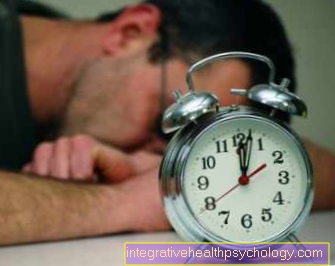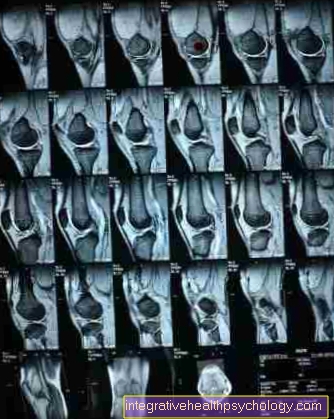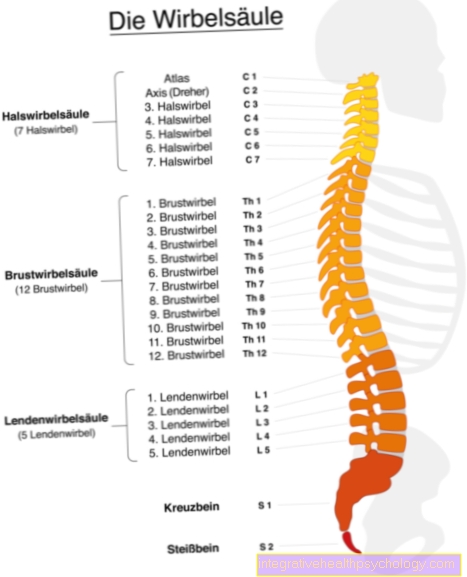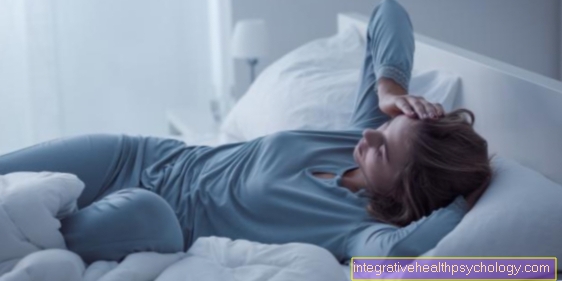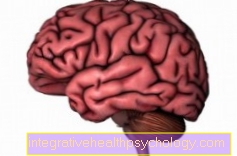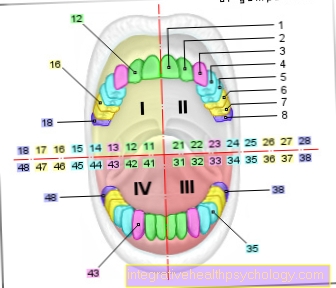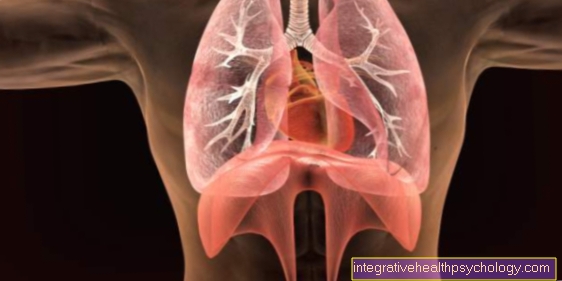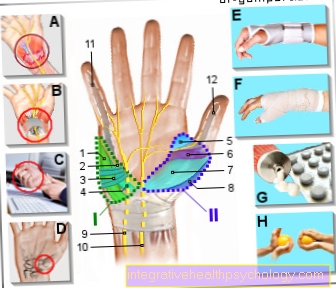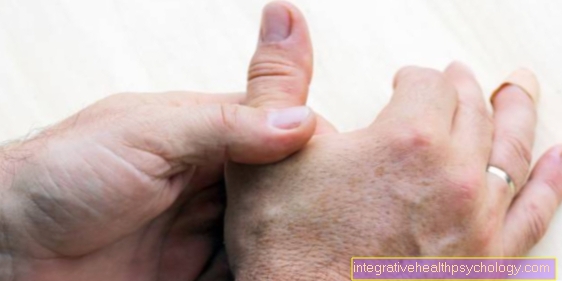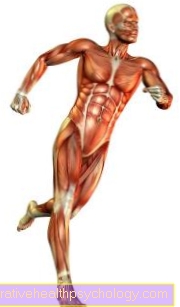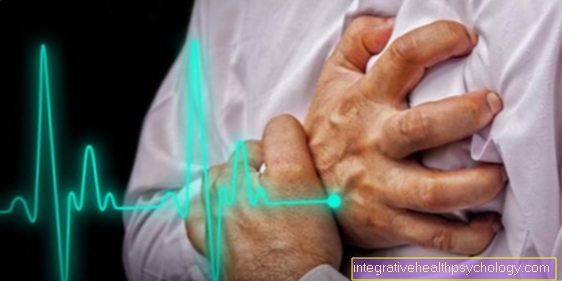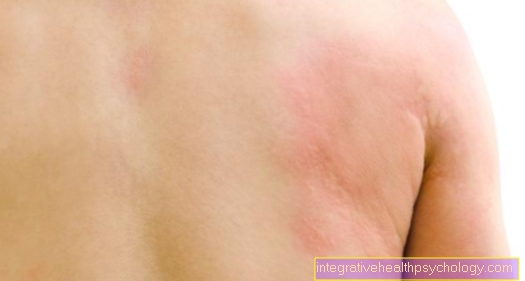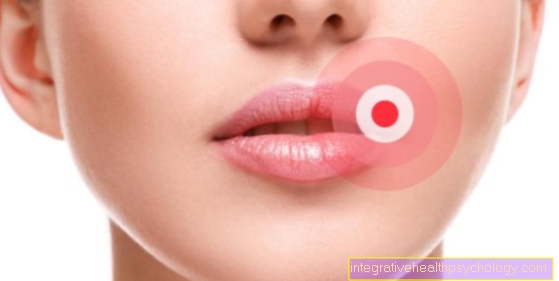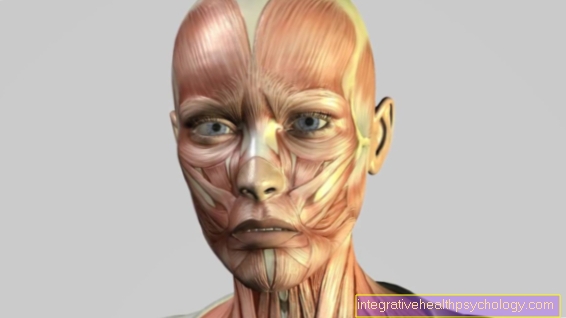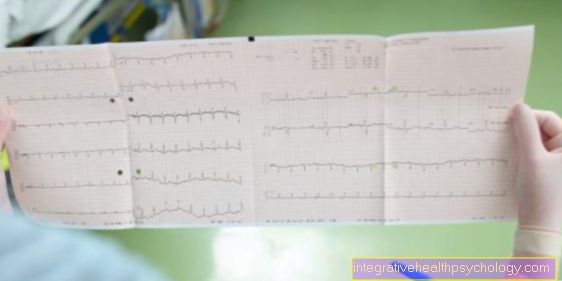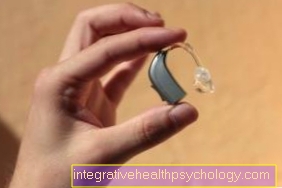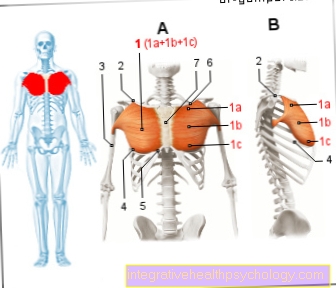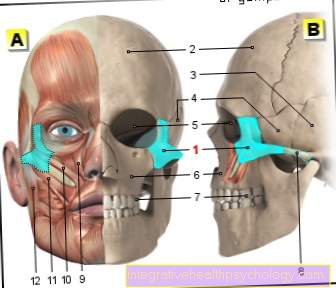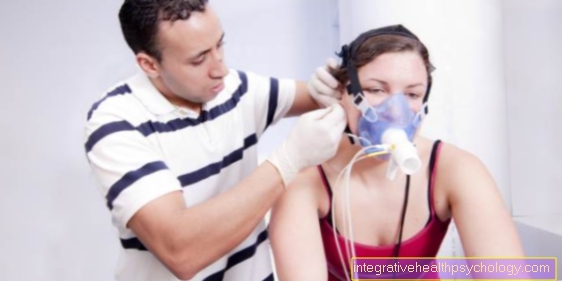Menopausal dizziness
What is Menopausal Vertigo?
The menopause (climacteric) describes the phase in which the hormonal balance of women changes. Before the menopause women are fertile, during the menopause menstruation becomes increasingly irregular. One year after the last menstrual period one speaks of the so-called menopause. The woman's ability to reproduce is thus ended. A multitude of symptoms are associated with the hormonal change during menopause. In addition to the well-known heat waves, this typically also includes dizziness. Menopause occurs naturally between the ages of 45 and 60 and usually lasts between five and ten years.
You might also be interested in this topic: Signs of menopause

Why is dizziness common during menopause?
During the menopause, the woman's fertility cycle changes. The sex organs of women are mainly affected by the changes. The function of the ovaries (ovaries) continues to decline over time. During menopause there are fewer and fewer so-called follicles from which an egg cell can develop. Instead, there are more cycles in which there is no longer any fertile egg cell available.
Since the ovaries are largely responsible for the production of the sex hormone estrogen, there is a decrease in the hormone during the menopause. At the same time, the levels of the hormone gonadotropin and FSH are upregulated. Reflectively, the concentration of the so-called inhibin decreases. In summary, menopause leads to a massive change in the hormonal balance of women, which can also unbalance other parts of the body. First of all, these hormonal changes put the body as a whole and also the psyche in a state of stress. This brings with it hormone and blood pressure fluctuations, the entire body has to re-coordinate itself and its messenger substances (the hormones). This mixture of stress, blood pressure and hormone fluctuations can quickly lead to symptoms such as dizziness.
Psychological stress
The menopause is a psychological stress for many women. In this phase, the fertile phase of the woman's life comes to an end; the hormone fluctuations quickly lead to nervousness and irritability. The resulting stress can play an important role in causing dizziness. In addition to purely organic causes, dizziness often has a large psychological component. During the menopause, in addition to psychological stress, there is also hormonal stress, which literally brings the body “off balance”. Therefore, dizziness is a common symptom during menopause.
You might also be interested in this topic: Dizziness from stress
Concomitant symptoms
During the menopause, there are many other symptoms that accompany dizziness. The onset of menopause is marked by the irregular menstruation in connection with different monthly bleeding rates. In addition, almost all women during the menopause suffer from hot flashes, urinary tract problems and a decreased libido can occur.
There is also a psychological component to the symptoms, which is mainly noticeable through irritability, nervousness and sleep disorders. In connection with the dizziness, drowsiness, headache, ringing in the ears, a ringing in the ear, rapid heartbeat and sweating can also occur.
For more information, see: Menopause symptoms
Drowsiness
Drowsiness is a very common symptom and can be associated with all sorts of diseases and conditions. During the menopause, the drowsiness can be attributed to a particularly rapid change in the hormonal balance. This unbalances the nerve cells as well as the hormones and electrolytes.
In addition to drowsiness, this can also result in headaches and dizziness. Often a ringing in the ears or a ringing in the ear occur in connection with the dizziness.
Read more on the topic: Dizziness and lightheadedness
Racing heart
The racing heart is often associated with sweats and hot flashes during menopause. This is usually due to a dysregulation of the cardiovascular system due to the strong hormonal changes. As long as the heart rate is regular and there are no symptoms such as dizziness, lightheadedness or even fainting spells, the heart rate is usually harmless. If the accompanying symptoms occur, the circulation and thus the blood pressure are negatively affected by the palpitations. In this case, the heart rate should be checked in order to rule out existing heart diseases and possible secondary diseases of the heart.
tinnitus
The ringing in the ears or ringing in the ear (tinnitus) are typical symptoms that occur together with dizziness. The reason for this is that the balance and hearing organs are right next to each other. During the menopause there are strong hormonal fluctuations in the blood, which can disrupt the blood flow to the balance and hearing organs, causing malfunctions such as dizziness and ringing in the ears.
Also read the article on the topic: Dizziness caused by the ear
Treatment / therapy
Therapy for dizziness during menopause consists of several components. There are several medicinal and homeopathic remedies to moderate the hormonal changes during the menopause and thus to alleviate the symptoms. However, causal therapy for menopause is difficult and unsuitable, as it is a natural process. Dizziness can also be treated, but the main focus is on treatment options that influence behavior when dealing with dizziness.
Calming and relaxing therapy measures are also used for dizziness during the menopause, as they lower the stress level of those affected and in particular reduce symptoms such as stress and ringing in the ears. Which type of therapy is suitable for individual persons depends on which climacteric complaints are in the foreground.
This article might also interest you: Therapy for vertigo
Medication
Dizziness is a symptom or a disease that in many cases cannot be treated well with medication. However, the symptoms of menopause can be treated with some medications. This in any case reduces the stress for the women concerned, which can also reduce accompanying complaints such as ringing in the ears and dizziness. Affected women can take so-called anticholinergics if they sweat frequently. These inhibit perspiration in the sweat cells. Melatonin - a hormone that regulates our sleep-wake cycle - also has positive effects on menopausal symptoms and can therefore also be used for dizziness during menopause.
Hormone replacement therapy in menopause should always be carefully considered. The hormones can greatly reduce the symptoms of menopause, but the risk of other diseases such as breast cancer and heart attacks increases at the same time. Therefore, these therapies should only be used if, for example, dizziness is particularly pronounced.
Read more on the topic: Medication for menopause
homeopathy
During menopause, the body is subject to many changes. These cannot and should not all be treated with medication, as it is a natural process in the body. In order to alleviate the symptoms, many herbal and homeopathic remedies can be used, whereby even with these remedies, attention should be paid to interactions between the active ingredients.
During the menopause, monk's pepper, red clover, black cohosh, soy and tofu, as well as yarrow, goji berries and green tea are used. If you feel dizzy, Argentum nitricum, Gelsemium sempervirens and Aconitum napellus can also be taken.
For more information, see: Homeopathy for menopause
Course of disease
Normally menopause begins slowly and increases over time, as do the symptoms. After a few years, the symptoms slowly decrease. It is the same with dizziness during menopause. With the end of the menopause, the dizziness usually disappears again.
Duration / forecast
Menopause usually lasts five to ten years, but the duration varies greatly from person to person. The severity of the symptoms is also very different. Menopausal dizziness usually subsides at the end of the menopause. The prognosis is therefore very good. More rarely, menopause provokes an intensification of dizziness that has existed for a long time

